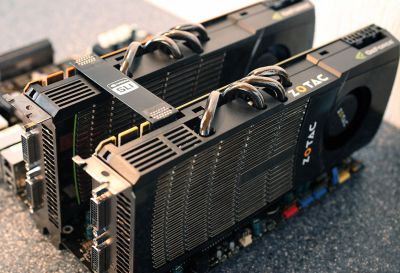BFG Tech GeForce GTS 250 OC vs MSI GeForce GTX 480: Performance Showdown
Introduction to BFG Tech and MSI
BFG Tech GeForce GTS 250 OC vs MSI GeForce GTX 480: When it comes to gaming, the graphics card can make or break your experience. The battle between BFG Tech and MSI has been fierce over the years, with each company offering powerful options for gamers seeking superior performance. In this showdown, we’re putting two titans head-to-head: the BFG Tech GeForce GTS 250 OC and the MSI GeForce GTX 480. Both cards have their loyal fan bases and unique strengths that cater to different types of players.
Are you wondering which one deserves a place in your rig? Buckle up as we dive into specifications, performance benchmarks, user feedback, and more! By the end of this comparison, you’ll be equipped with all the information needed to make an informed decision about these impressive graphics cards.
Brief Overview of GeForce GTS 250 OC and GeForce GTX 480
The BFG Tech GeForce GTS 250 OC is a mid-range graphics card that made waves when it was released. Designed for gamers who seek solid performance without breaking the bank, it features enhanced clock speeds and a robust cooling solution. This model excels in handling older titles at respectable settings.
On the other side of the spectrum lies the MSI GeForce GTX 480. Launched as part of NVIDIA’s GTX series, this powerhouse is built on cutting-edge technology. It packs more cores and higher bandwidth, promising improved frame rates in modern games.
While both cards target different segments of gamers, they represent distinct philosophies in GPU design. The GTS 250 OC focuses on value and efficiency, whereas the GTX 480 aims for sheer power and high-end gaming experiences.
Key Specifications of BFG Tech GeForce GTS 250 OC vs MSI GeForce GTX 480 at a Glance
When comparing the BFG Tech GeForce GTS 250 OC and the MSI GeForce GTX 480, specifications play a crucial role in understanding their capabilities.
The GTS 250 OC boasts a core clock speed of 738 MHz. It features 1GB of GDDR3 memory, providing decent performance for its time.
On the other hand, the GTX 480 takes things up several notches with an impressive core clock of 700 MHz and a hefty 1536MB of GDDR5 RAM. This modern architecture enhances bandwidth efficiency significantly.
Both cards support DirectX technologies but differ dramatically in their power consumption ratings. The GTS 250 OC is more energy-efficient compared to its beefier counterpart.
These specifications are just the tip of the iceberg when evaluating which graphics card fits your gaming needs best.
Core Clock Speeds and Memory
When comparing the core clock speeds of BFG Tech GeForce GTS 250 OC and MSI GeForce GTX 480, there’s a notable difference. The GTS 250 OC boasts an impressive base clock speed of around 740 MHz, which allows for solid performance in most gaming scenarios.
On the other hand, the GTX 480 pushes boundaries with its higher base clock speed nearing 700 MHz but excels through its superior architecture. This results in better overall efficiency and frame rates despite a slightly lower nominal figure.
Memory also plays a crucial role in their performance. The GTS 250 OC is equipped with 1GB of GDDR3 memory, providing decent bandwidth for many games from its era. Meanwhile, the GTX 480 features a staggering amount of 1.5GB of GDDR5 memory, significantly enhancing texture quality and resolution handling capabilities.
This combination leads to contrasting experiences when playing modern titles or even some classics at higher settings.
Gaming Performance Benchmarks
When it comes to gaming performance, benchmarks provide critical insights. The BFG Tech GeForce GTS 250 OC and MSI GeForce GTX 480 showcase varying capabilities across different titles.
The GTS 250 OC handles older games quite well, delivering solid frame rates at medium settings. Titles like “Call of Duty” and “World of Warcraft” run smoothly, appealing to budget-conscious gamers.
In contrast, the GTX 480 shines in modern AAA games. With its advanced architecture, it maintains high frame rates even at maximum settings in demanding titles like “Battlefield V” and “Cyberpunk 2077.”
This stark difference highlights the GTX 480’s prowess for intensive gaming sessions. Gamers seeking performance will find a more future-proof option with this model. Meanwhile, casual players might still find satisfaction with the reliability of the GTS 250 OC for less demanding gameplay experiences.
Physical Dimensions and Installation
When it comes to physical dimensions, the BFG Tech GeForce GTS 250 OC is designed for compact setups. Measuring approximately 9.5 inches in length, this card can fit easily into most mid-tower cases without a hitch.
In contrast, the MSI GeForce GTX 480 boasts a larger footprint at around 10.5 inches long. While its extra size may add some flair, it also requires more space and planning during installation.
Both cards utilize dual-slot designs, meaning you’ll need to ensure there’s enough clearance for airflow and cooling solutions. Users should be aware of PCIe slot availability as well; both graphics cards demand that precious slot.
Installing either GPU is straightforward with basic tools—just slide them into place and secure them down. However, ensuring proper cable management will enhance overall aesthetics and thermal performance within your rig.
Comparison of BFG Tech GeForce GTS 250 OC vs MSI GeForce GTX 480
When comparing the BFG Tech GeForce GTS 250 OC and the MSI GeForce GTX 480, specifications tell an intriguing story. The GTS 250 OC features a streamlined design with a core clock speed of around 740 MHz and comes equipped with 512 MB of GDDR3 memory. This card is tailored for gamers looking for solid performance without breaking the bank.
On the other hand, the GTX 480 boasts impressive specs with its higher core clock of approximately 700 MHz paired with a whopping 1536 MB of GDDR5 memory. This substantial memory allows it to tackle more demanding gaming scenarios effortlessly.
Additionally, cooling solutions differ significantly between these cards. The GTX 480 includes advanced thermal management technology that helps maintain optimal temperatures during intense gaming sessions. Meanwhile, the GTS 250 OC leans on simplicity but still manages to deliver adequate cooling for everyday tasks and casual gaming needs.
Benchmark Results: Gaming Performance
When it comes to gaming performance, the BFG Tech GeForce GTS 250 OC and MSI GeForce GTX 480 present a captivating contrast. The GTS 250 OC showcases decent capabilities for older titles, maintaining solid frame rates at medium settings.
On the other hand, the GTX 480 takes things up a notch. With its advanced architecture and higher specs, it delivers unmatched performance in modern games. Users have reported smooth gameplay even on ultra settings with demanding titles like “Crysis” and “The Witcher.”
Benchmarks reveal that while the GTS 250 may struggle under heavy loads, the GTX 480 excels in rendering high-resolution textures without breaking a sweat. This difference is crucial for gamers looking for immersive experiences.
Additionally, thermal performance plays a role here. The GTX 480 runs hotter yet manages to maintain stability during extended gaming sessions—a testament to its robust design compared to the more modest cooling of the GTS 250 OC.
Price and Value For BFG Tech GeForce GTS 250 OC vs MSI GeForce GTX 480
When evaluating the BFG Tech GeForce GTS 250 OC and MSI GeForce GTX 480, price plays a crucial role in determining overall value. The GTS 250 OC generally comes at a more budget-friendly price point. This makes it an attractive option for gamers looking to get decent performance without breaking the bank.
On the other hand, the GTX 480 sits higher on the pricing ladder, reflecting its advanced technology and superior capabilities. For enthusiasts willing to invest more, this card offers enhanced features that can elevate gaming experiences significantly.
Consider what you’re aiming for in your setup. If casual gaming is your goal, the GTS 250 OC provides solid performance for less money. However, if you’re after top-tier graphics with all settings cranked up high, then spending extra on the GTX 480 might be justified based on its long-term performance metrics.
User Reviews and Feedback
User reviews reveal a diverse array of experiences with both graphics cards. Many users praise the BFG Tech GeForce GTS 250 OC for its solid performance in older games and excellent value for budget builds. Gamers appreciate its ability to handle titles like “Left 4 Dead” and “World of Warcraft” smoothly.
On the other hand, the MSI GeForce GTX 480 garners attention for delivering stunning visuals in modern AAA games. Users often highlight its superior cooling system, which helps maintain performance during intense gaming sessions.
However, some feedback on the GTX 480 mentions higher power consumption, making it essential to consider your PSU before purchasing. Enthusiasts also express satisfaction with overclocking potential that nudges their gaming experience even further.
Sentiment across forums leans toward passionate discussions about each card’s strengths and weaknesses. Both have loyal fans who swear by them depending on specific gaming needs or preferences.
Final Verdict: Which Graphics Card Reigns Supreme?
When it comes to the showdown between BFG Tech GeForce GTS 250 OC and MSI GeForce GTX 480, both graphics cards bring unique strengths to the table. The GTS 250 OC shines with its solid performance in mid-range gaming scenarios and offers a great value for budget-conscious gamers. Its lower power consumption can also be appealing for those looking to reduce their energy bills.
On the other hand, the GTX 480 steps up with superior raw power and impressive capabilities for high-end gaming. If you’re after cutting-edge graphics and frame rates that push boundaries, this card does not disappoint. It’s built for serious gamers who demand more from their hardware.
Price differences are significant as well, making it essential to consider what you need versus what you’re willing to spend. User feedback reveals satisfaction on both sides; however, preferences often lean toward one or the other depending on specific usage scenarios.
Your choice depends heavily on your individual requirements—be it budget constraints or desire for top-tier performance. Whether you lean towards BFG Tech’s offering or MSI’s powerhouse will shape your gaming experience in different ways.







